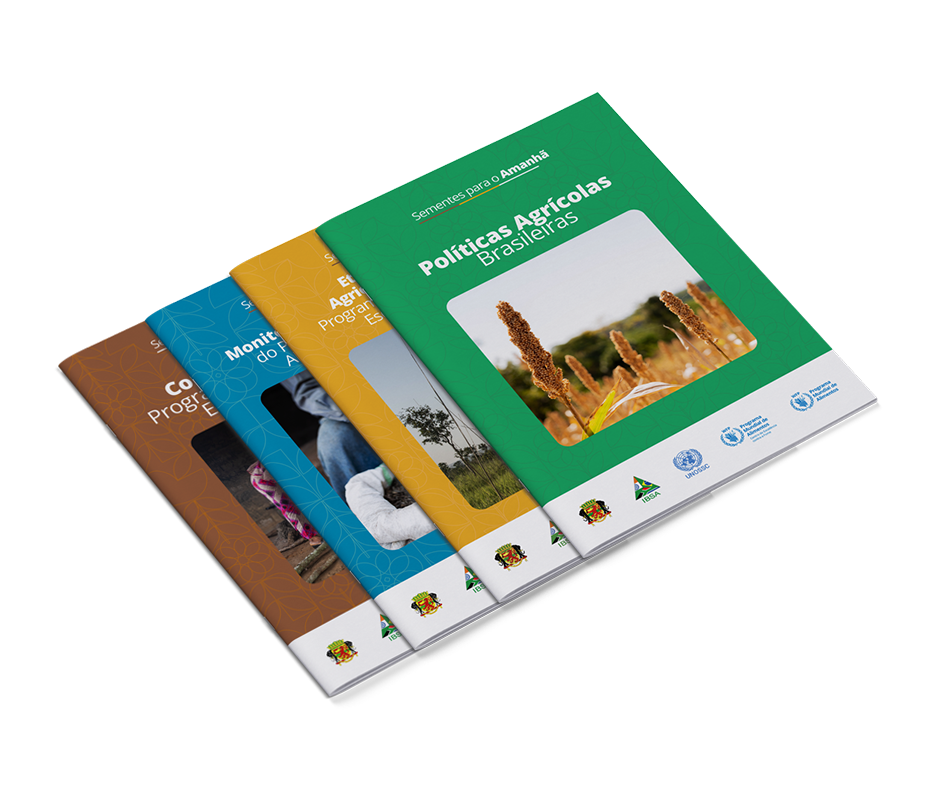
Four technical manuals aimed at strengthening school feeding and family farming in the Republic of Congo are now available online. Developed under the “Seeds for Tomorrow” initiative, the manuals share Brazil’s experiences to support the implementation of integrated public policies, with a focus on the procurement of food from family farms for school feeding programmes.
The project is a joint effort by the WFP Centre of Excellence against Hunger in Brazil, in partnership with the Government of the Republic of Congo, the Government of Brazil, WFP Republic of Congo and the United Nations Office for South-South Cooperation (UNOSSC). The project is funded by the IBAS Fund (India, Brazil and South Africa Fund for Poverty and Hunger Relief).
The manual entitled “Brazilian Agricultural Policies” presents a strategic vision of policies aimed at family farming, proposing an adaptation of these guidelines to the Congolese context. The publication highlights how coordinated actions, such as access to land, credit, technical assistance and markets, have contributed to transforming rural areas in Brazil and ensuring healthy food for the population.
Another, entitled “Stages of purchasing from family farms for the Brazilian National School Feeding Programme (PNAE)”, serves as an operational guide for purchasing products from family farms for school meals. It offers practical guidance for implementing local public procurement, with a focus on social inclusion and sustainability.
The third manual, “Monitoring and Evaluation of the National School Feeding Programme”, presents the tools needed to monitor the programme’s performance. And the publication “Social Control in the School Feeding Programme in Brazil” deals with the creation and functioning of school feeding committees, which are fundamental to ensuring community participation and the effectiveness of actions.
The manuals are available in Portuguese and French in the Publications section of the Seeds for Tomorrow Project website.




